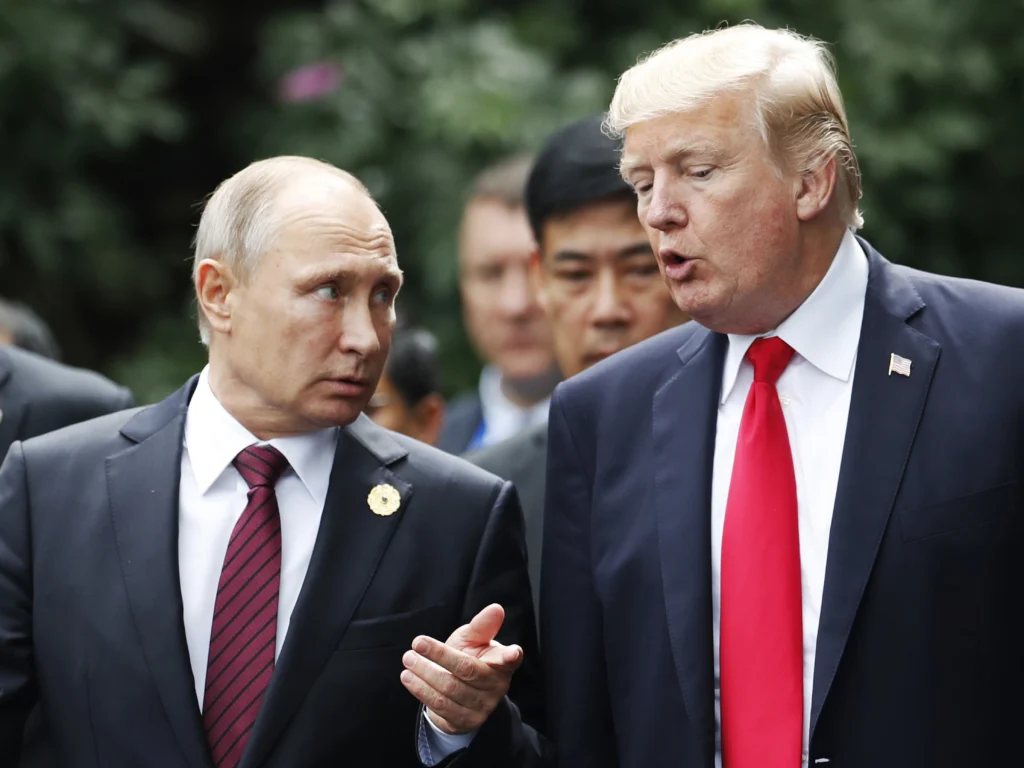Trump’s Tariff Gamble: Introduction
President Donald Trump is moving forward with a self-imposed April 2 deadline for sweeping tariffs, a decision that has sparked economic debates and geopolitical tensions. His approach, which includes reciprocal tariffs and additional measures targeting foreign adversaries, has been met with both support and criticism. As businesses and global markets brace for the impact, experts weigh in on the potential consequences.
These tariffs are not just about economics—they are about power, leverage, and reshaping international trade relations. Trump has long championed the idea that tariffs strengthen the U.S. economy by protecting domestic industries and pressuring other countries into fairer trade deals. However, detractors argue that tariffs could increase costs for American consumers and fuel retaliation from foreign governments.
The April 2 Tariff Deadline: What It Means
Trump has dubbed April 2 as “Liberation Day,” a move that signifies a shift toward an aggressive trade policy. The planned tariffs include:
- 25% tariffs on automobiles and car parts
- Additional secondary tariffs on Russia and Iran if diplomatic resolutions fail
- Possible targeted tariffs on other nations deemed to be engaging in unfair trade practices
During an interview with a news agency, Trump expressed dissatisfaction with Russian President Vladimir Putin’s stance on Ukraine, hinting at potential secondary sanctions should negotiations stall. The president also signaled a similar approach toward Iran, suggesting that trade restrictions could remain until a favorable deal is reached.
While Trump has positioned this as a strategic move to boost American industry, the uncertainty surrounding these policies has led to fluctuating stock markets and concerns from economic analysts. The question remains: will these tariffs achieve the intended results, or will they escalate trade conflicts that harm the U.S. economy?
The Economic Implications of Trump’s Tariff Strategy
Experts argue that the tariff plans could have significant economic repercussions, including:
- Market Volatility: Previous tariff announcements have led to stock market fluctuations, raising concerns about investor confidence.
- Increased Consumer Costs: While Trump’s advisors argue that the burden will be absorbed by foreign exporters, many economists warn of higher prices on imported goods.
- Trade Negotiation Leverage: Tariffs have long been a cornerstone of Trump’s trade strategy, used to pressure other nations into more favorable agreements.
- Manufacturing Growth vs. Supply Chain Disruptions: While some industries may benefit from reduced competition, global supply chains reliant on foreign imports could suffer major disruptions.
National Economic Council Director Kevin Hassett has emphasized that Trump remains flexible, stating that the final scope of tariffs is still under review. He reassured the public that the administration is working toward a “golden age of America.”
Economic analysts, however, caution that this aggressive approach may backfire by slowing growth and alienating key trade partners. Many companies depend on imported materials, and increasing tariffs could mean higher production costs and lower profit margins.
The Geopolitical Landscape: Allies and Adversaries React
The proposed tariffs have triggered varied international responses:

- Russia: While an agreement was recently reached to halt Black Sea military operations, Moscow remains wary of potential economic sanctions. Russian officials have warned that additional tariffs could strain already fragile diplomatic relations.
- Iran: Iranian President Masoud Pezeshkian has rejected direct negotiations on nuclear policy, signaling that trade restrictions may persist. Economic sanctions have already weakened Iran’s economy, but further pressure could provoke more instability in the Middle East.
- European Union: European leaders have expressed concerns that broad tariffs could damage transatlantic trade relations, potentially prompting retaliatory tariffs on American goods.
- Global Markets: Uncertainty surrounding US trade policies has rippled across financial sectors, with businesses seeking clarity on long-term implications. A prolonged tariff war could reduce foreign investments in the United States and slow overall economic growth.
The Administration’s Defense: “Trust in Trump”
Trump’s senior trade advisor, Peter Navarro, has dismissed concerns about economic disruption. He argues that tariffs serve as a tool for economic growth, reinforcing national security and job creation. During an interview, Navarro reiterated the administration’s stance:
- Tariffs will generate revenue to fund tax cuts
- They will protect domestic industries from foreign competition
- The long-term economic benefits outweigh short-term instability
Despite these assurances, public opinion remains divided. While some view tariffs as a necessary step toward fair trade, others fear inflationary pressures and strained international relations.
Proponents believe that this approach could lead to stronger domestic manufacturing and reduced dependence on foreign goods. Critics, however, point to historical precedents where protectionist policies led to economic downturns rather than growth.
Will Tariffs Spur Economic Growth or Lead to Recession?
A key question remains: will these tariffs ultimately help or hurt the U.S. economy?
Potential Benefits:
- Stronger domestic industries protected from foreign undercutting
- More leverage in negotiating favorable trade deals
- Additional government revenue from tariff collections
Potential Drawbacks:
- Higher costs for consumers due to increased import prices
- Strained international relations leading to retaliatory tariffs
- Supply chain disruptions for industries reliant on foreign materials
The administration argues that the short-term discomfort will be worth the long-term economic gains, while critics fear a downturn if global trade becomes too restricted.
Conclusion: A Calculated Risk or Economic Gamble?
As the April 2 deadline approaches, businesses and policymakers await Trump’s final decision. The effectiveness of this tariff strategy will largely depend on how foreign nations respond and whether economic growth offsets the risks. While supporters believe in Trump’s negotiation tactics, critics warn of unintended consequences that could disrupt global trade.
The coming weeks will reveal whether this bold move leads to stronger economic positioning—or triggers a new wave of trade tensions. Will Trump’s tariffs bolster American industries or backfire? Only time will tell.
Whatever the outcome, one thing is clear: Trump’s tariff strategy marks a defining moment in U.S. economic policy, with lasting implications for global trade dynamics.


